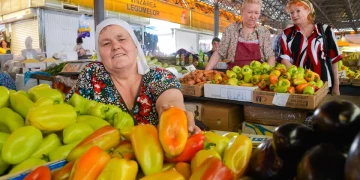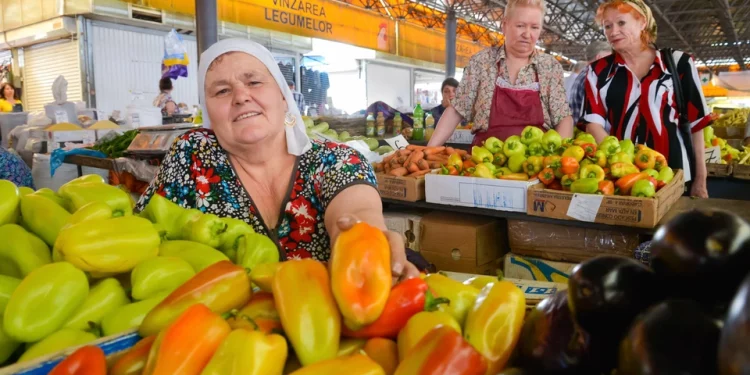Moldovan vegetables and fruits are rarely found in supermarkets, but they are still available in the market. Photo: moldova.travel
At the height of the season, there are a lot of fruits and vegetables on the shelves of Moldovan shops and markets. We have been accustomed for generations to eat a variety of vegetables and have fruits for dessert. For this, so many products are grown in the country. Only now you rarely see her in stores, even in season. An employee of a large supermarket chain told KP about the secrets of buying and selling local and foreign vegetables and fruits.
We understand that now the word “cheaper” sounds blasphemous, but nevertheless, the fact that it is more economical to bring dill from Argentina from across the ocean than to contact local producers is clearly visible when comparing the prices of a supermarket and a bazaar.
No, supermarkets are not set against Moldovan farmers. It’s just that Moldovan producers of agricultural products prefer to take their products abroad, fulfilling all the conditions under the contract. In Moldova, they are not ready to do this.
It is equally more convenient to bring even a carrot or an avocado from abroad than to take it from farmers from Moldovan regions. There are often problems with the locals. For example, we have repeatedly had claims against the Moldovan producer of arugula. The supplier, quite brazenly, puts not leaves, but bare, rough stems into the package of greens to increase weight. Buyers quarrel with us, we warned the supplier several times, and then it was decided to increase the purchase of Italian arugula. And, oddly enough, it is always fresh, unlike the Moldovan one.
Supermarkets suffer losses on the sale of perishable products. Vegetables and fruits have to be removed from the shelves when they lose their appearance. Moldovan producers either do not know how to properly assemble or store their products, but they deteriorate much faster.
But imported vegetables and fruits arrive beautiful, packaged and subject to storage. What is done abroad with the goods is usually a secret of the suppliers. It is always pleasant to pick up a box of tomatoes brought from Greece, rather than poking around in a dirty box with Moldovan “cream”, choosing whole and undamaged fruits.
Now they took a chance in the season – they brought Moldavian peaches, but their delicate skin spoiled everything for us. Fruit very quickly ceased to look presentable. Buyers sorted them out and rolled them in boxes. Yes, Moldovan peaches are sweeter and tastier, but they are very difficult to sell. A Moldovan in a village under a tree will pick up a hit or slightly rotten peach and eat it, while in the supermarket the same person will want to buy only the perfect fruit.
Although buyers are very fond of farm products, therefore, vegetables and fruits are better sold in the so-called “farm layout”, when the fruits are piled rather than packaged.
In the 90s there was such an anecdote, which even now describes the situation in the fruit and vegetable market of our country.
For the first time, a native of the USSR enters a grocery store abroad and asks:
- And when do you get the first strawberries?
They answer him:
- At 6 am.
At that moment, everyone who lived in the USSR laughed out loud, because strawberries cannot be in stores all year round every day in the morning on the counter. Strawberries have a short season in late spring and early summer. Ate, period.
But if you set up the right retail, then strawberries can be found on the shelves of Moldovan supermarkets even out of season, however, at the price of a cast-iron bridge, as they say.
So another reason why stores prefer to import vegetables and fruits is their consistency in supply. Moldova, of course, is getting poorer now, but still there are strawberry lovers who are ready to pay 200 lei for a 300-gram box of berries and even more.
The importer of vegetables and fruits has an inexhaustible source of goods, well, except for force majeure, as during a lockdown or military operations, but even this did not greatly affect the supply.
By and large, supermarkets are trying to run a profitable business for both retailers and customers, and there is no conspiracy here.































